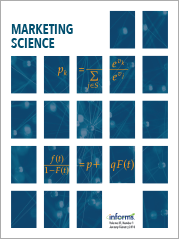 A study published in May 2021 by the journal Marketing Science investigated the growth of Netflix in 41 Asian countries. In one country where access to Netflix was restricted – Indonesia – they concluded that piracy increased by about 20 percent in that country over the study period.
A study published in May 2021 by the journal Marketing Science investigated the growth of Netflix in 41 Asian countries. In one country where access to Netflix was restricted – Indonesia – they concluded that piracy increased by about 20 percent in that country over the study period.
While the study has gained media coverage in recent days, its methodology is questionable and its data is years old.
Link to the press release and summary (INFORMS)
Link to the study itself: The Effect of Over-the-Top Media Services on Piracy Search: Evidence from a Natural Experiment, by Shijie Lu of the University of Houston, Koushyar Rajavi of the Georgia Institute of Technology and Isaac Dinner of Indeed in Austin, Texas.
Why the study is flawed
- The study period was from 2014 to 2016 and the resulting report was transmitted to the publisher in 2019, making the research data years out of date.
- Countries cited as examples of increased piracy have passed site blocking laws more recently than the research period so the researchers could not have measured their effectiveness. In the case of Indonesia, according to the Asia Video Industry Association, piracy dropped more than 50% between 2019 and 2020.
- The data itself was monthly search data by Google, which is a measure of interest. While a measure of interest levels may correlate with piracy, is not representative of actual piracy instances.
- The COVID pandemic, which accelerated the maturation of the streaming video business – and piracy – by years, was years in the future.
What’s more, the conclusion that piracy increases when access to content or service is limited reflects the obvious.












